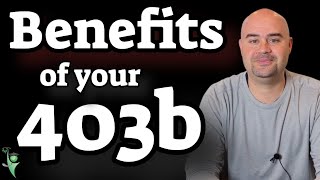The Benefits of 403b: A Comprehensive Guide
When it comes to planning for retirement, understanding the various options available can be overwhelming. One such option is the 403b retirement plan. In this article, we will explore the benefits of a 403b plan and how it can help you secure a financially stable future.
Tax Advantages
One of the key benefits of a 403b plan is the tax advantages it offers. Contributions made to a 403b plan are typically tax-deferred, meaning you won’t pay taxes on the money you contribute until you withdraw it during retirement. This allows you to reduce your taxable income in the present while potentially being in a lower tax bracket during retirement.
Employer Contributions
Many employers offer matching contributions to their employees’ 403b plans. This means that for every dollar you contribute, your employer will also contribute a certain percentage, up to a specified limit. This is essentially free money being added to your retirement savings, helping you grow your nest egg faster.
Higher Contribution Limits
Compared to other retirement plans, such as IRAs, 403b plans have higher contribution limits. As of 2021, the maximum annual contribution limit for a 403b plan is $19,500, with an additional catch-up contribution of $6,500 for individuals aged 50 or older. These higher limits allow you to save more for retirement and potentially enjoy a more comfortable lifestyle during your golden years.
Flexibility in Investment Options
403b plans offer a wide range of investment options, allowing you to choose the ones that align with your risk tolerance and long-term financial goals. Whether you prefer stocks, bonds, mutual funds, or annuities, a 403b plan can accommodate your investment preferences. This flexibility ensures that your retirement savings are tailored to your unique needs and preferences.
Portability
If you change jobs, you can easily transfer your 403b plan to a new employer or roll it over into an Individual Retirement Account (IRA) without incurring any tax penalties. This portability feature provides you with the freedom to switch jobs without worrying about losing your retirement savings or facing unnecessary fees.
Catch-Up Contributions
As mentioned earlier, individuals aged 50 or older can make catch-up contributions to their 403b plans. This allows them to contribute additional funds beyond the regular limits, helping them make up for any lost time in saving for retirement. Catch-up contributions can significantly boost your retirement savings and ensure a more comfortable retirement lifestyle.
Lower Administrative Costs
403b plans often have lower administrative costs compared to other retirement plans, such as 401(k)s. This means that more of your contributions go directly towards your investments, allowing your retirement savings to grow at a faster rate. Lower administrative costs can have a substantial impact on the overall performance of your retirement portfolio.
Supplement to Other Retirement Plans
If you already have a pension or Social Security benefits, a 403b plan can serve as an additional source of retirement income. It can supplement your existing retirement funds and provide you with a more secure financial future. Diversifying your retirement income sources is crucial to ensure stability and mitigate any potential risks.

In summary, a 403b plan offers numerous benefits that can help you build a solid foundation for your retirement. From tax advantages and employer contributions to higher contribution limits and investment flexibility, a 403b plan provides you with the tools to secure a financially stable future. Remember to consult with a financial advisor to determine the best retirement strategy based on your circumstances.
Frequently Asked Questions about the Benefits of 403b
1. What is a 403b plan?
A 403b plan is a retirement savings plan for employees of public schools, non-profit organizations, and some religious organizations. It allows employees to contribute a portion of their salary on a pre-tax basis.
2. How does a 403b plan differ from a 401k plan?
While both plans are retirement savings plans, a 403b plan is specifically designed for employees of certain tax-exempt organizations, while a 401k plan is typically offered by for-profit companies.
3. What are the tax benefits of a 403b plan?
Contributions to a 403b plan are made on a pre-tax basis, meaning they are deducted from your taxable income. This can lower your overall tax liability and allow your savings to grow tax-deferred until retirement.
4. Can I contribute to a 403b plan if I already have a 401k?
Yes, you can contribute to both a 403b plan and a 401k plan simultaneously, as long as you meet the eligibility criteria for each plan.
5. Are there any contribution limits for a 403b plan?
Yes, there are annual contribution limits set by the IRS. For 2021, the limit is $19,500, with an additional catch-up contribution of $6,500 for individuals aged 50 or older.
6. Can I take a loan from my 403b plan?
Yes, some 403b plans allow participants to take loans from their accounts. However, not all plans offer this option, so it’s important to check with your plan administrator.
7. What happens to my 403b plan if I change jobs?
You have several options when changing jobs. You can leave your funds in the existing 403b plan, roll them over into a new employer’s retirement plan, roll them into an Individual Retirement Account (IRA), or cash out the funds (subject to taxes and penalties).
8. Can I withdraw money from my 403b plan before retirement?
Generally, you can only withdraw money from your 403b plan before retirement if you experience a financial hardship or meet certain criteria outlined by the IRS. However, early withdrawals are subject to taxes and penalties.
9. What investment options are available within a 403b plan?
403b plans typically offer a range of investment options, including mutual funds, annuities, and sometimes employer stock. The specific options available may vary depending on your plan provider.
10. Are there any income limits for contributing to a 403b plan?
No, there are no income limits for contributing to a 403b plan. However, some highly compensated employees may face additional restrictions on their contributions based on their employer’s plan design.




